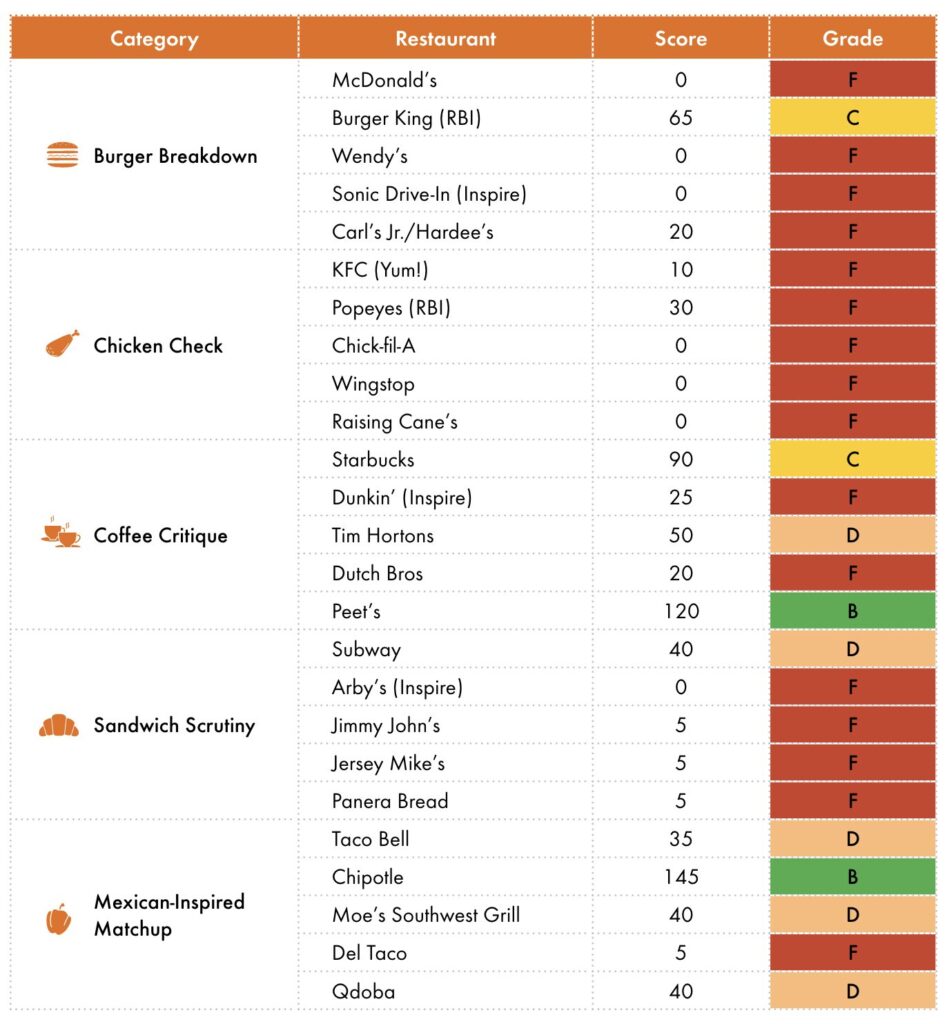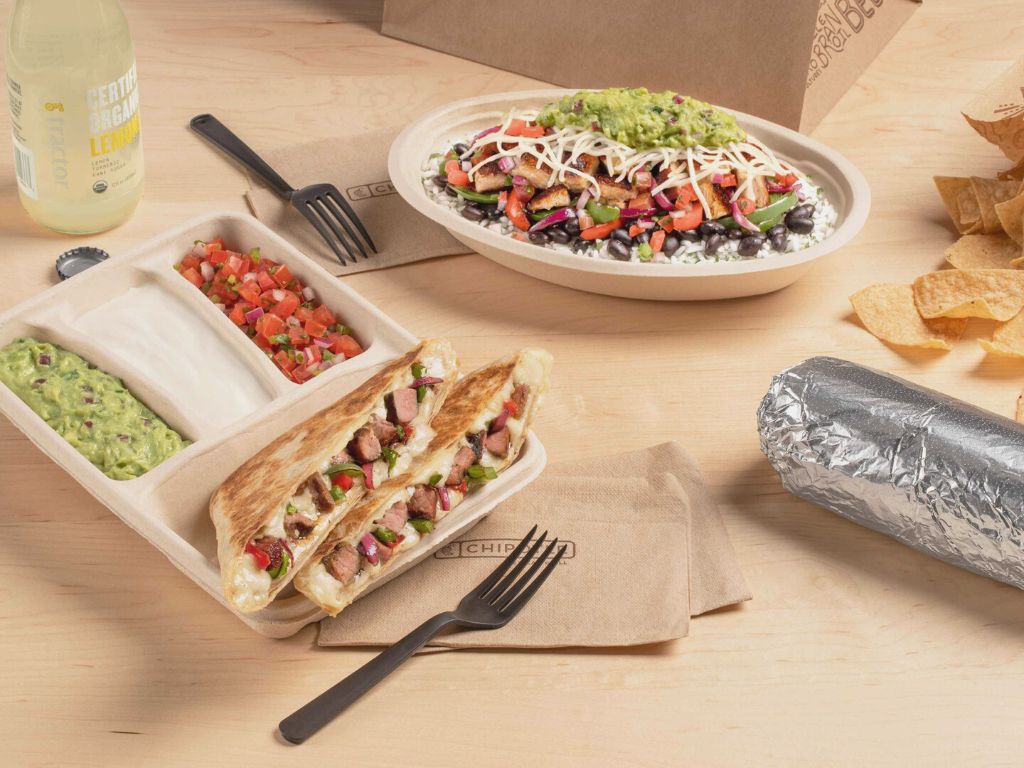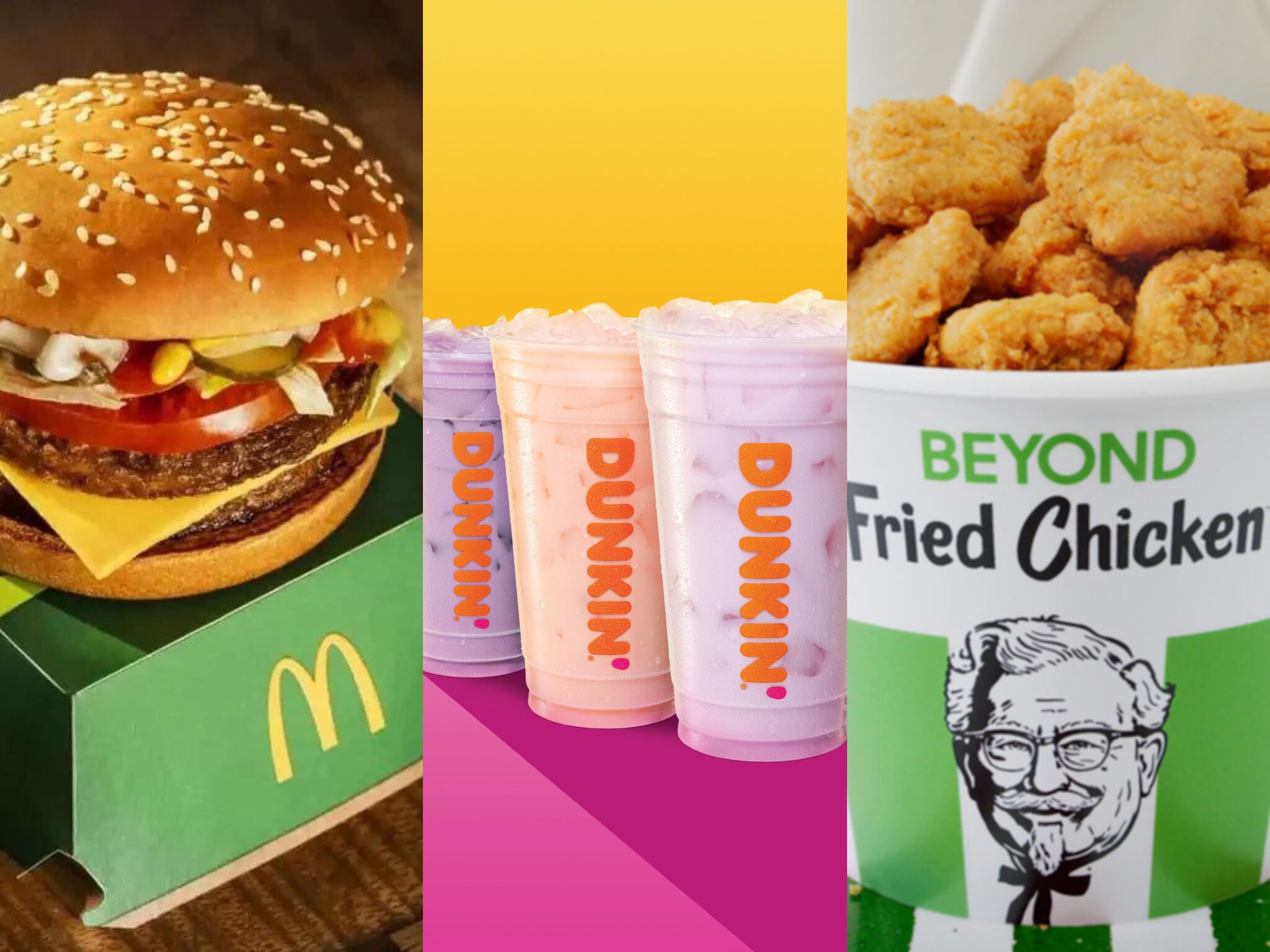McDonald’s, KFC, Dunkin’ Among Top US Chains Failing to Embrace Plant-Based Food
5 Mins Read
A report card of the top 25 food and beverage chains in the US ranks them on their progress towards plant-based menus – the results are dire.
McDonald’s generated a lot of headlines last month after its US president said the McPlant had failed after being tested in two American cities, and there were no plans to bring it back.
So it’s no wonder that despite being the world’s largest food chain, its climate progress is alarmingly bad – a large reason for which is the sheer amount of beef it buys and sells. But it’s not the only company leaving a lot to be desired when it comes to vegan options.
A new report by World Animal Protection reveals that most of the top chains in the US are failing to embrace meaningful commitments to address their carbon-heavy menus, or a ‘plant-based by default‘ approach – where vegan dishes are the primary option, and animal-based products are presented as alternatives.
The Moving the Menu 2024 scorecard assessed the five most popular chains in five categories: burgers, chicken, sandwiches, coffee and beverages, and Latin- or Mexican-inspired. McDonald’s, KFC, Wendy’s, Chick-fil-A, Subway and Taco Bell all received the lowest grade – in fact, only nine companies (36%) received a score other than F, and even then, five of them got a D mark.
The highest-scoring company was Chipotle, followed by Peet’s Coffee and Starbucks.
“Chain restaurants play a pivotal role in the daily food decisions of many American families,” said Annette Manusevich, farming campaign manager at World Animal Protection. “Despite the urgent need to shift to more plant-based diets and the growing consumer demand for ethical and environmentally friendly food choices, most leading chains like Taco Bell and McDonald’s are failing to make the grade.”
Coffee and Latin American companies shine – the rest not so much

When it came to numbered rankings, seven of the chains scored a zero (from a possible total of 220), including three each in the burger and chicken categories. This includes McDonald’s, Wendy’s and Sonic Drive-In.
Burger King was the only burger chain to not receive an F grade (representing very poor progress), instead getting a C (making some progress) with a score of 65, the fourth-highest on the list. This is thanks to its offering of the Impossible Whopper, which it has continued promoting and keeping on its menu. Carl’s Jr/Hardee’s escaped a zero with a score of 20, but still received the bottom grade.
Things are even more problematic in the chicken category, with all five chains – Popeyes, KFC, Chick-fil-A, Wingstop and Raising Cane’s – getting an F grade (the latter three scored zero).
Similarly, only Subway avoided an F in the sandwich sector, getting a D (little progress). Arby’s scored zero, while Jimmy John’s, Jerry Mike’s and Panera all scored five. Subway’s limited progress comes from offering select plant-based menu options.
Companies in the Latin American cuisine sphere fared much better. Chipotle received a B grade (good progress) with a score of 145, thanks to its large selection of vegan by default options, extensive advocacy of the benefits of plant-based, and more transparent supply chain reporting than the rest. While Del Taco got an F, Qdoba, Moe’s and Taco Bell received D grades, since they have some plant-based menu items (or those that can be modified to be vegan).
Coffee was the best-performing sector. Peet’s had a score of 120 (B grade) for its default vegan options on both food and drink menus, and supportive policies for plant-based consumption. And with a score of 90, Starbucks obtained a C grade – while it has a variety of plant-based by default beverage options, its food offerings need updating. Meanwhile, Tim Horton’s received a D grade, while Dunkin’ and Dutch Bros were in the lowest tier.
Consumer trials have shown that with a default plant-based model in place, 81.5% of consumers would choose the meat- and dairy-free options, cutting emissions by 24%.
‘Time for restaurants to step up’

Animal agriculture is responsible for up to 20% of global emissions. Meat production alone emits twice as many greenhouse gases as plant-based foods. And despite taking up 80% of the world’s agricultural land, livestock farming only supplies 17% of its calories and 38% of its protein.
“Establishing and promoting innovative plant-based by default menus is critical for shifting our food system away from the destruction and suffering inherent in factory farming, and [to] move us towards a more sustainable future,” said Manusevich.
World Animal Protection’s report calls on food chains to position plant proteins as integral to achieving climate goals, and invest in creating adding and promoting plant-based by default menu options (which would be permanently and widely available).
Companies must also make public commitments to reduce animal product purchases by 25% by 2030 (from a 2020 baseline), and identify opportunities to incorporate more alternative proteins in their supply chains, like fermentation-derived and cultivated proteins.
Finally, it asks companies to adopt benchmarks to measure and annually report their progress toward setting their sourcing and sustainability commitments.
“The plant-based sector presents an opportunity for restaurants to create innovative menus that resonate with their customers while promoting sustainability and moving the world away from cruelty,” the report stated. “Despite some chains testing new plant-based menu items on a limited basis, few restaurant chains are fully investing in heavily plant-based menus.
“As the plant-based sector continues to grow and other innovations emerge, restaurants must make these products available and promote their benefits to customers. It is time for restaurants to step up and lead the way towards a more compassionate and sustainable future in the food industry.”



